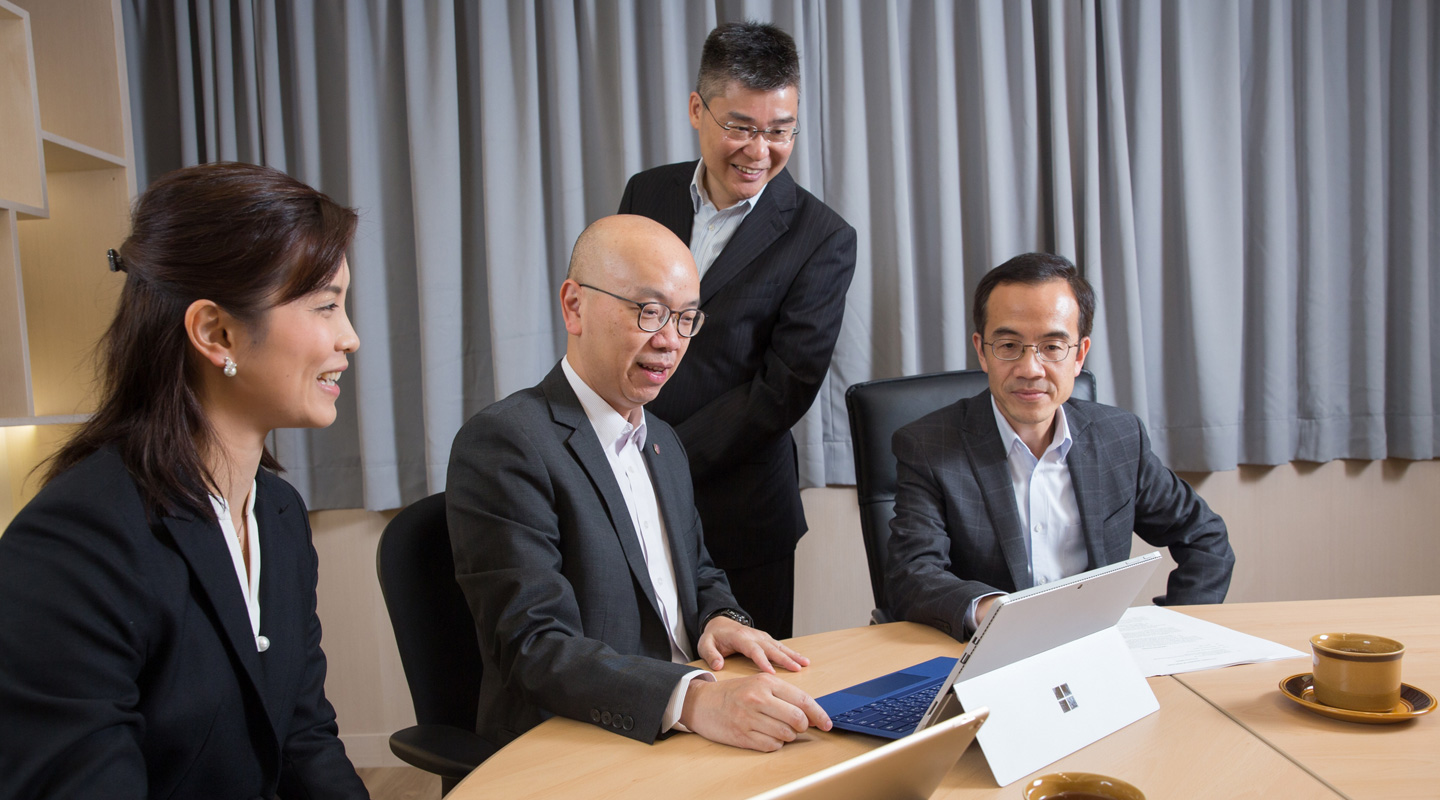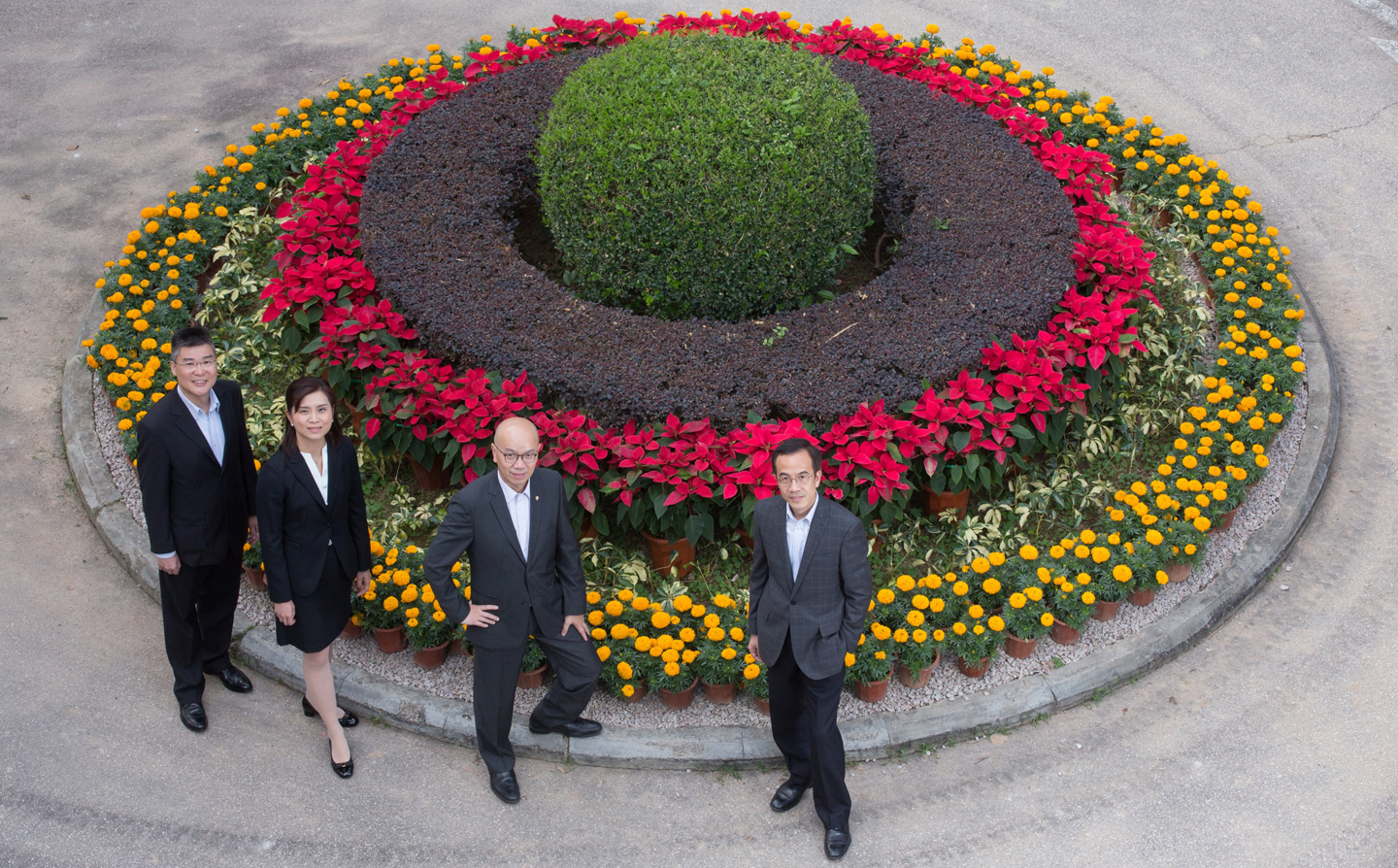Dear readers, With the launch of e-newsletter CUHK in Focus, CUHKUPDates has retired and this site will no longer be updated. To stay abreast of the University’s latest news, please go to https://focus.cuhk.edu.hk. Thank you.
The Campus Clinic Getting in Shape and Getting Ready

A visit to the University Health Service (UHS) located in a serene corner of campus is part of the collective memory of every generation of CUHK students and staff. But the services offered by UHS are not limited to outpatient consultations but also include dental services, physiotherapy and other minor procedures. The campus clinic has been able to stay at the forefront of health services with its updated inventory of medical technology and upholding clinical governance principles that prioritize patients’ well-being to provide quality professional services to the University community.
According to statistics from the Health Department, in 2016 every medical practitioner in Hong Kong served on the average 82 citizens. This figure becomes 800 on CUHK campus, where UHS’s team of 60 serve a campus population of nearly 50,000. In the face of increasing demand for services, Dr. Scotty Luk, Director of University Health Service, and his team have weathered the challenges to continuously enhance efficiency and add value to their services.
Collaborating with Outside Parties
One of the challenges faced by UHS is how to meet demand with supply. By partnering with outside parties, e.g., territory-wide chain clinics, it can make outpatient services available to University staff anywhere anytime. Such partnerships can also ease the workload of the campus clinic in times of epidemics. Another important work of UHS is to work with insurers to provide suitable and affordable medical and hospitalization insurance schemes to University staff.
Early Diagnoses with State-of-the-art Equipment
State-of-the-art equipment is crucial for diagnostic efficiency. Dr. Luk said, ‘UHS will soon install some medical equipments including one that can analyse blood samples with high speed. Our doctors can get the test results very soon and make that little headway in diagnosis and prescription. This will shorten the queue and the doctors can see more patients.’
The physiotherapy section of UHS will install a machine that is specifically adept at treating chronic pains. Traditional treatment methods would take several days to relieve pains but the new machine can achieve that in much lesser time. Physiotherapy clinics off-campus charge around $1,000 for such service. UHS will only charge at cost, all for the care of the well-being of our students and staff.
A Safer Campus through Vaccination
Before the flu virus hits the peak each year, UHS will have already put up a line of defence by providing vaccination to University staff and students. High-risk personnel (such as full-time staff and students of the Medical School, and full-time staff of the Estates Management Office and the Security and Transport Office who are more vulnerable due to their work nature) are given free vaccination. In 2016, UHS had vaccinated 1,183 (including 531 students) from these high-risk groups. The preventive measure has avoided campus-wide epidemics and reduced the chance of infected staff and students bringing the bug home.

Hiccups before Success
It is never easy to bring about changes. UHS has digitalized its archive of patients’ medical histories and automated its prescription system. Patient records can now be retrieved in no time to facilitate diagnosis and prescription. The digitalization of the reimbursement of medical expenses has also shortened the time of reimbursement. But these have not been smooth sailings all the way. It took time for UHS staff to adapt to the new modus operandi. The medical team had to work closely with colleagues from the Information Technology Services Centre before they could get the best out of the new system. Users are not blind to the positive changes in the operation of UHS, as is evident from the customer satisfaction surveys in recent years.
UHS, however, does not measure success by figures alone. Its primary concern is on the people, how they feel when they are receiving treatment at the clinic. That’s why much effort has been put into giving the clinic an easy and relaxed ambience, with its spacious lobby, gentle lightings, landscape paintings that hang on the wall, and uniformed staff all of which combine to calm nerves and inspire confidence in the visitors. Privacy is very much respected and ensured by the availability of consultation rooms. Nevertheless, the staff at UHS understand that no sickness is a happy experience. Besides doing their utmost to treat the sickness, they also do everything to make the treatment process as anxiety-free as possible. In treating the body they have not forgotten about the mind.
With 2017 drawing to a close, and even if they know they are ready to treat any visitor to their clinic with heart and expert hand, the UHS team would still want to wish the best of health to all the students and staff of the University.
This article was originally published in No. 509/510, Newsletter in Dec 2017.